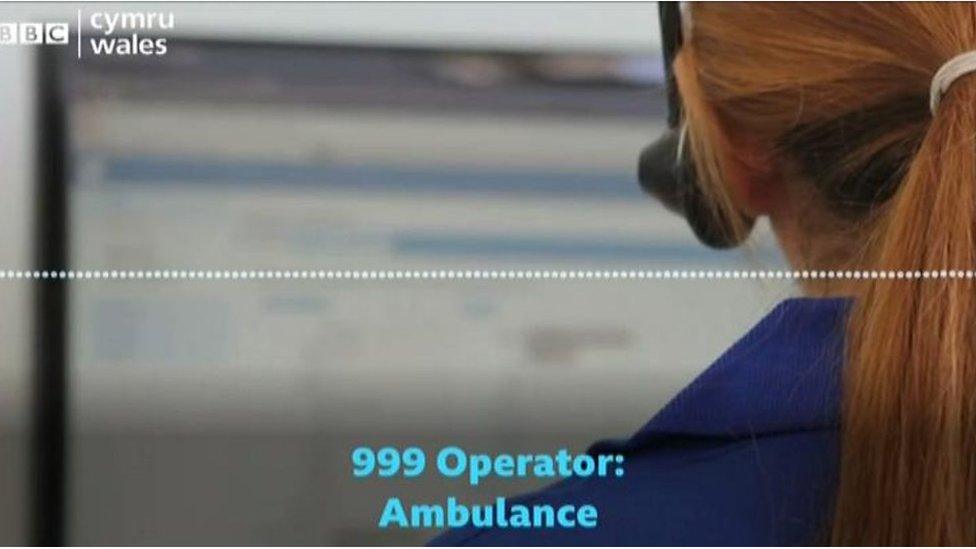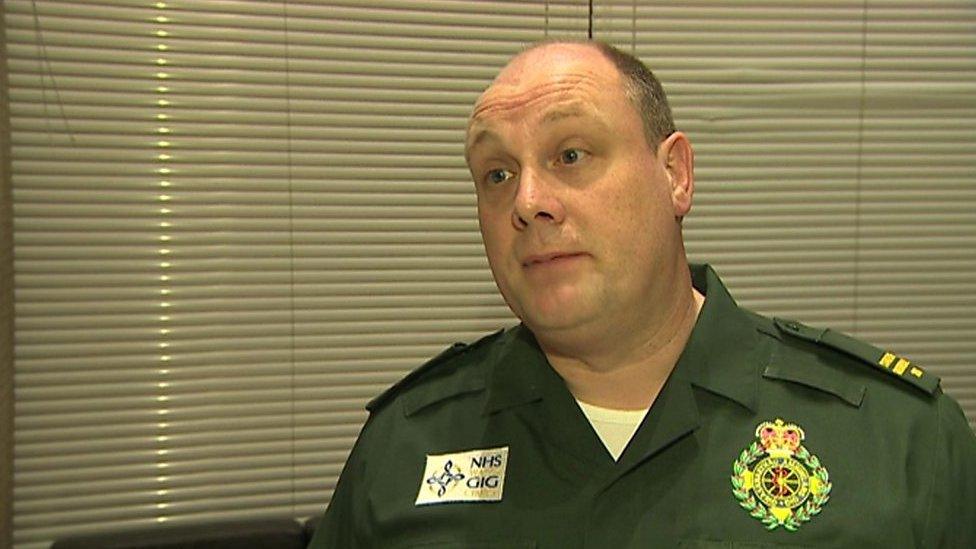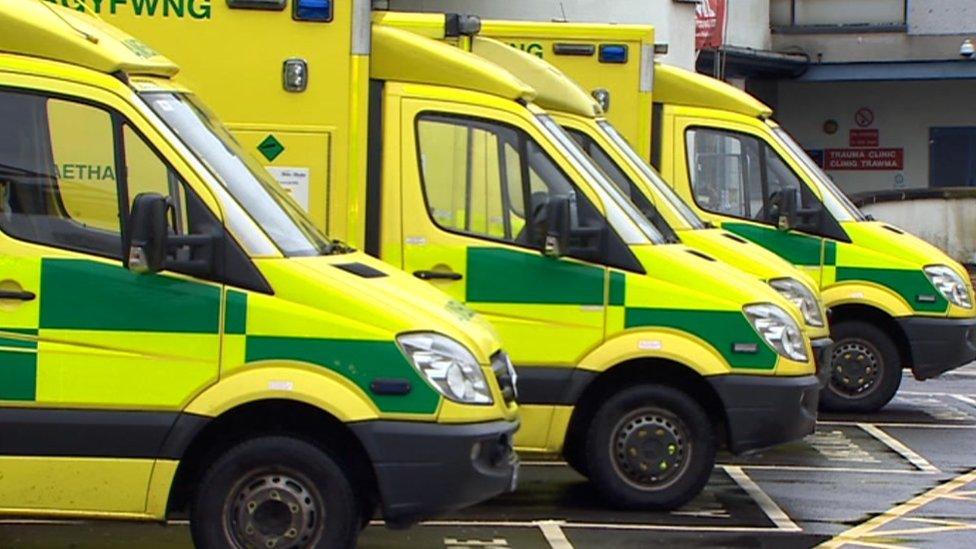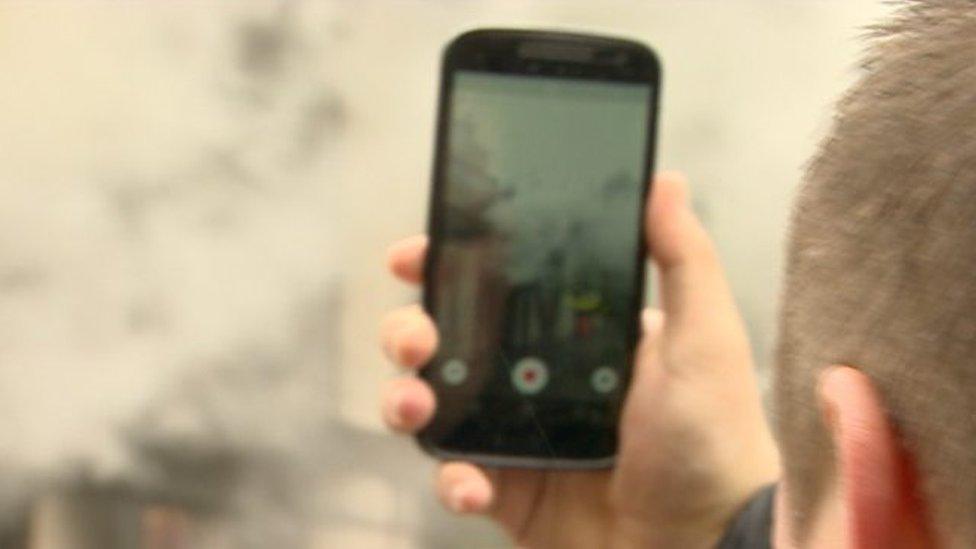Welsh Ambulance Service 'cut frequent callers by 1,200'
- Published
- comments
A call James made to the Welsh Ambulance Service has been released to stop other frequent callers
Efforts to tackle frequent 999 callers saved more than 1,200 unnecessary ambulance callouts last year, according to the Welsh Ambulance Service.
Frequent callers are people who dial an emergency service more than five times in a month or 12 times in three months.
In 2017, the "top 10" most prolific callers accounted for 3,284 calls to the Welsh Ambulance Service.
Instead of sending an ambulance to each one, many frequent callers are put in touch with other services instead.
These types of calls account for between 4% and 5% of the service's 999 call volume each month. The service received almost half a million calls, external in 2016-17.
One former frequent caller said he now realises his actions were "wrong".
James, from the Vale of Glamorgan, was responsible for 13 calls to the service in just over a month because he wanted help with stomach pain, often brought on after heavy drinking.
"I'd phone at least once a week, sometimes less and sometimes more, but only when I'd had a drink," he said.
"I was trying to get rid of the pain by drinking but it was only making things worse. Nine times out of 10 it was the alcohol, there's no good lying about it. With help I've faced it and I'm now over it.
"Now I think back on it I just imagine - what if a child was dying, and I was on the phone to the ambulance service and took that child's place?"
Robin Petterson, the Welsh Ambulance Service's frequent caller lead, explains how the system works
Frequent callers often dial 999 for inappropriate reasons - the worst case dialled the ambulance service almost 400 times last year.
Before changes four years ago, the service would dispatch an ambulance to every caller, regardless of how many times they had phoned.
Robin Petterson, the service's frequent caller lead, said the system has changed "quite dramatically" and frequent callers are now flagged up on their system.
"It was very clear there was an issue and we could see the amount of time it was taking our ambulance crews to resolve these calls," he said.
"So we decided to look further into why they were ringing 999 and whether or not people like GPs, the police, or anyone these people were known to, could become part of the solution."
Mr Petterson said they were often referred to another non-emergency service to help deal with any underlying social or behavioural issue that might be behind the calls.
After picking up on James's calls, the ambulance service made contact with his GP to see if they could meet him to discuss what was going on.
After diagnosing the cause of his stomach pain as a hernia, his doctor's surgery was able to offer him treatment for the condition, along with counselling.
James said it helped him "turn his life around".
- Published11 January 2018

- Published31 December 2017

- Published31 December 2017

- Published13 November 2017
